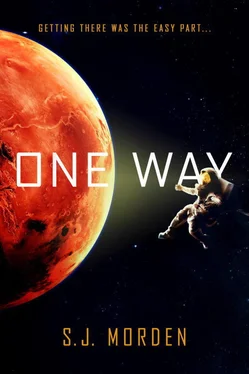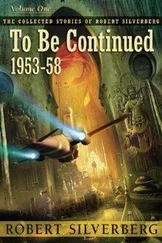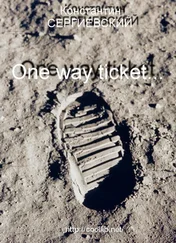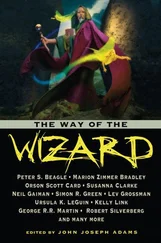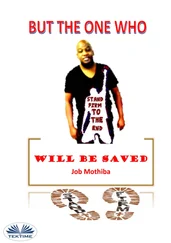Frank got his arms down his sleeves and zipped himself up. He sat there for a moment, thinking that it should be more momentous than this. He was on another planet, joining a very short list of people who’d been there before him. Yet, it was utterly anticlimactic. Like getting up in the morning, hunting down the first coffee of the day, feeling ill and still knowing he had to go to work.
He tried standing up. A lifetime’s worth of learned experience hadn’t prepared him for the sensation of both falling and flying. His hand shot out—thankfully at normal speed—to hang on to the curved top of the ladder. At least he hadn’t pitched himself to the floor or slithered down the hole.
Alice wasn’t making any big moves. Her actions were small and precise, and when she needed to get across the cabin she shuffled, dragging her feet over the gratings. He had to move like Alice, because he was certain he didn’t want to spend the next six weeks wearing a jury-rigged cast on a broken ankle.
He put his water bottle in a long pocket in his overalls, and placed one foot on the top rung. Slowly, purposefully, he made his way down, one step at a time. It felt wrong, and he was going to have to get used to it.
The floor below was full of panels of switches and screens. He had no idea what any of them did, so he didn’t touch them. The ladder kept on going down. He was about to continue with his descent when the image on one of the screens flipped from being an interior shot to exterior.
Pale pink stones in dark red sand. A mountain in the distance, rising up in a dusty haze. The image changed to one of Brack moving from console to console. Frank could hear him, too, below his feet.
“Get your lazy ass down here, Kittridge. We got ourselves a situation and I need to apprise you of it.”
Frank climbed down and found Brack staring at a computer screen with several windows open on it. He couldn’t see any seats. Brack was hunched over, his elbows pressed against the edges of the fold-out keyboard.
“Is there anything to eat?” asked Frank.
“About that,” said Brack. “Shepherd told you we have limited supplies? You scarf it down now, we’ve got nothing for later, and we might need it.” He relented and held out a foil-wrapped rectangle containing something that, when he bit into it, had the consistency of a chewy brick. Frank could only nibble on the corner. What he really wanted was coffee, but he settled for some lukewarm water.
“Is there a problem?”
“It’s your problem, Kittridge. Or should I call you ‘number two’? Kind of suits you.” Brack tapped at the screen, and brought one of the maps to the fore. “We’re here, a couple of miles off target, but still in Rahe crater.”
Frank hunkered down next to Brack, aware of a strange antiseptic smell coming from him. He probably smelled like that himself. He looked at the screen. The map was familiar to him: an irregularly shaped crater, some twenty miles by ten, carved out by an impact that had left a hole the shape of a football stadium, at the foot of a big-ass dead volcano.
“This is where we’re supposed to be building the base.” Brack tapped another window to the front. “And this is where all our materiel is.”
Frank tilted his head, trying to make sense of the screen. He knew what it should all look like. That oval was the crater, Rahe, where they were. To the south, there was something that looked like a giant bullet wound. The volcano. There was the arc of another smaller one to the north. A sprinkling of craters dotted the landscape.
Across the plain, to the east of the crater, were scattered points of light, like someone had taken a handful of gravel and tossed it to the ground.
“Are those our cylinders?”
“Bet your ass they are.”
“Crap.”
“For once, Kittridge, I agree wholeheartedly with your assessment. This furthest one, here, is eighty miles out. The closest one is fifteen. I’m making a list to collect them, in order of priority. And when I say priority, I mean which is most important for our survival.”
“You need your drivers. That’s why I’m up, and why Alice is getting Marcy up.” Frank sipped water, gnawed more off the bar. “What’s going to happen to the others?”
“The others are staying on ice. They can contribute precisely nothing to this part of the mission, will consume valuable resources, and I’m not having them yapping in my ear while you and the Highway Killer sort out our little local difficulty.”
Frank chewed and swallowed, and concentrated on staying upright as Brack shuffled the open windows around. But he had caught Marcy’s nickname: Highway Killer. He stored that away for later.
“OK,” said Brack. “We caught ourselves a break. The closest cylinder is the one containing the buggies.”
“Wait, what?” Frank coughed up sticky crumbs. “We don’t have the buggies?”
“Sure we do.” He tapped the screen. “Fifteen miles out.”
“No, on this…” Frank didn’t quite know what to call it, or whether it had an official name like Eagle or Endeavor “… ship.”
“It wouldn’t be so much of an emergency if we did, would it?” Brack brought up the map. “It’s fifteen miles. You can walk that in, say, four hours. Gravity is a third of what it is back home, so you’ll expend less energy and use less air and water than you would do on Earth. You’ve got nine hours’ supply of air, so a couple of hours to build two buggies, and another hour driving them back. That will still leave you two hours for any fuck-ups.”
“Four hours to cover fifteen miles in a spacesuit?”
“It’s a Surface Exploration Suit now. You telling me you can’t cover fifteen miles in four hours? What kind of pussy are you?” He was interrupted by the sound of Marcy gagging two floors up. They both glanced up, then slowly looked back at each other.
Any idea that Frank had that Brack might be different on Mars, more co-operative, less confrontational, slipped away in the rarefied atmosphere.
“You’re ordering me to do it.”
“Nothing has changed, Kittridge. Nothing at all. You do what I tell you, when I tell you to do it. Every breath you take, you’re using my air. You have to pay me for that. So I’m done explaining your shit to you. You’re both going. Now, I got a whole pile of other things to check, so I’ll let you break the news to Cole yourself.” Brack turned back to his screens, and after a moment murmured, “Why are you still here?”
Frank pocketed the food and water and pulled himself back up the ladder. It wasn’t like floating, but neither was it like climbing. He went hand over hand nevertheless, through the compartment with the monitoring equipment, again catching sight of the barren pink desert that lay just outside, and up into the top chamber.
Marcy was hunched over clutching at her knees. She was naked apart from her thin bodysuit, and wrapped in what for once was appropriately called a space blanket. She was shivering and gasping—using up Brack’s air—and her fingers were digging deep into her skin as each fresh wave of pain took her.
“Tell me it stops,” she said through chattering teeth.
He hadn’t experienced what she was going through, and he almost said so before he realized that Alice was glaring at him.
“It stops,” he said. “You’ll be fine.”
The doctor refocused her concentration on filling a syringe with a clear liquid. “Side effect of the tank. This will sort it out.” She wasn’t wearing gloves, Frank noticed, and neither did she bother to swab Marcy’s upper arm. “Hold her still. I can’t get the needle in otherwise.”
Frank hesitated, which earned him a growled, “Do it.”
He hadn’t done more than knock fists with another human being—the personnel at the Blood Bank didn’t count—for years. And he suddenly realized that he was scared to break that taboo. Touching someone in prison meant harm, one way or another.
Читать дальше
